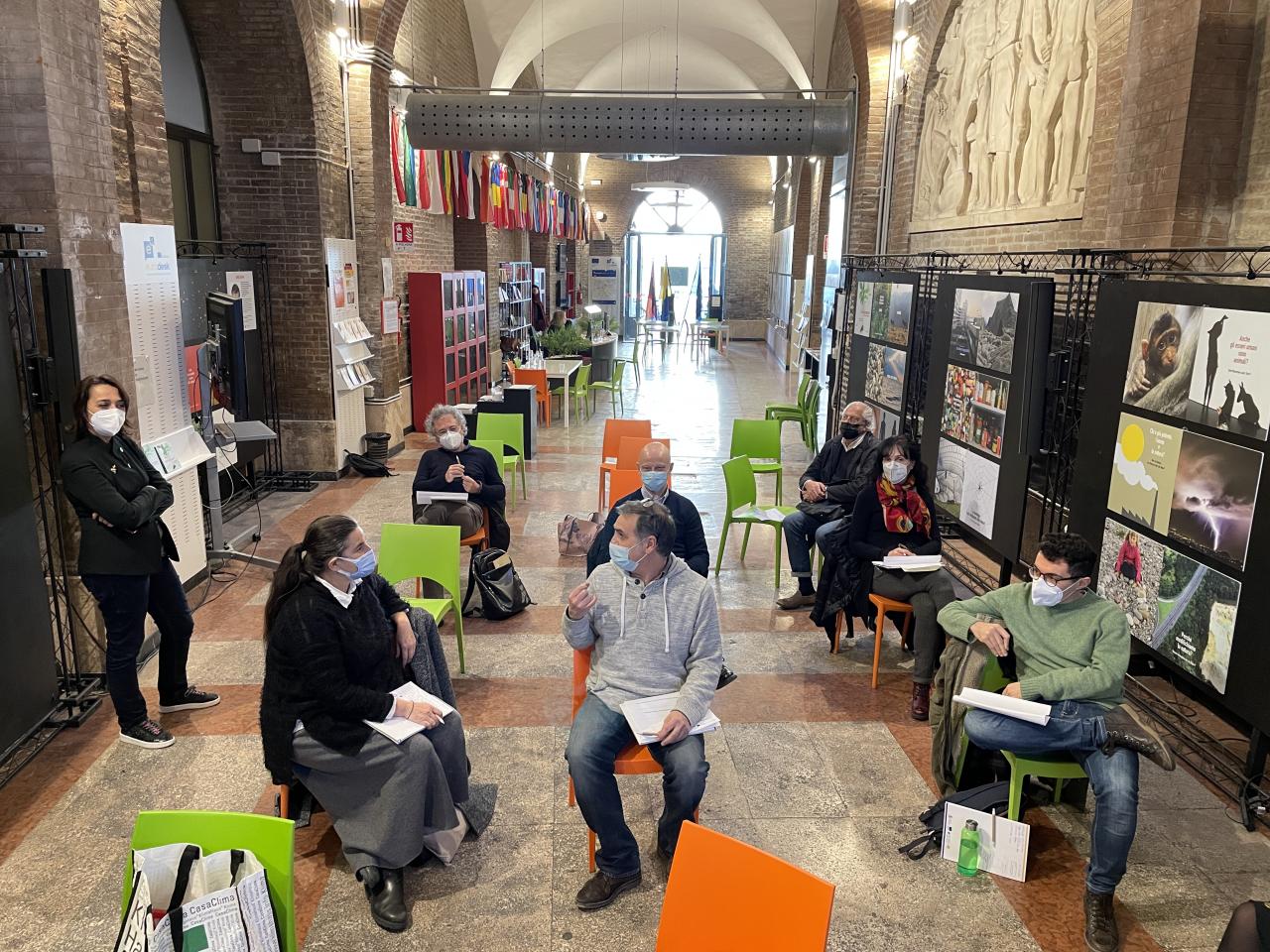
2021 represents an important year for the City of Modena when the EU project URBACT ZCC participatory process has come to its full implementation.
In fact, despite the Covid-19 emergency that has not allowed mostly in presence initiatives, the 2021 has been characterised by:
- 6 ULG local meetings (from February to December 2021), most of them held online, adding up to the 3 ULGs of the end of 2020 (from September to November 2020);
- the finalisation of the local pilot action, with the involvement of high school and university students which resulted in the Climate-KIC Climathon initiative “Smuoviamo I Torrazzi! / Let’s move Torrazzi”, a competition on sustainable mobility.
Along with these, Modena’s City Executive for Environment, Agriculture and Sustainable mobility, Alessandra Filippi, illustrated the ULG participatory process in the frame of the Bioarchitecture and Sustainability Week 2021, organised by AESS, the Energy and Sustainable Development Agency.
In particular, on November 23rd, during the session dedicated to the new SECAP objectives for carbon neutrality, she described the participatory process of ZCC that gathered 24 organisations of the local territory with more than 80 participants involved in 9 meetings, in order to:
- investigate several issues connected to Climate neutrality as the future urban mobility, energy retrofit and renewable sources, agroecology perspectives, from waste to product;
- build a common vision to get to carbon neutrality by 2050;
- take the steps for the elaboration of the future ZCC local Integrated Action Plan (IAP), having as reference the approved SECAP (February 2021).
During the majority of the ULG online meetings, we worked in two parallel groups, with two moderators, working on a virtual board with the back casting technique was applied.
First, it was asked participants to travel forward in time to an ideal future when to look back at the path that led to success. Then, going back to present day and using the new way of understanding future, participants were asked to plan the road to success: these different perspectives can help assess the feasibility of an ideal future and the actions needed to get there.
By applying this instrument, it was possible to plan actions from an overall perspective of the milestones to be achieved, together with their feasibility and the influence we can have on their implementation.
The last two meetings (June 23rd and December 16th, 2021), both in presence, focused respectively on:
- the definition of strategic actions to develop the shared vision for Modena at 2050, to put together the ideas that came from thematic meetings and to start to work on actions;
- the sharing of the IAP draft with the ULG and the deepening of proposed strategic actions (defined through the previous ULG meetings), foreseeing the illustration and debate among participants of pilot projects to be implement by the organisation they work for, through a sort of “speed date/peer-to-peer review” for carbon neutrality.
For what refers to project pilot action, with the Climate-KIC Climathon initiative “Smuoviamo I Torrazzi!”, held on November 12th and 13th 2021, new inputs for ZCC were collected, all coming from young people who wanted to answer to the question “How to reduce the private transport and promote sustainable and shared transport modalities through public and private cooperation strategies?”
The first day, a webinar was organised to introduce the theme and methodology of the pilot action, describing, among the others: main features of Modena’s SUMP; the case study of Torrazzi; travel plans home-work and their opportunities for enterprises; the Young Innovators project.
The second day, the young participants to the Competition, divided into 3 groups, were asked to elaborate projects regarding a specific area of Modena (Torrazzi), to be evaluated by 3 judges, on three possible challenges:
- Increase the access and use of sustainable mobility solutions for workers of Torrazzi area in the home-work trips
- Identify action for the regeneration of the area with the aim of improving quality of life, with an impact in terms of mitigation and adaptation to climate change;
- Take advantage of already planned interventions of the city administration, area management consortium and other entities (digital infrastructure and safety improvement, etc.) to implement new synergies for a smart city, with impacts in terms of mitigation and adaptation to climate change.
At the end the Jury announced the winner: a group called “Ingegneri (in)sostenibili / (Un)sustainable engineers”, with a project for the improvement on sustainable mobility measure, through a park and ride lot realization for workers at the entrance of the site, connected to autonomous-driving shuttles, in order to move around the area without using private vehicles; the increase of the bike network and bike facilities on site; the introduction of systems to monitor the quality of the air with real-time visualization of the data.
Written by: Maria Gina Mussini of the City of Modena - Bureau for European projects, international relations and coordination of strategic projects; Francesca Poli of AESS, the Energy and Sustainable Development Agency
